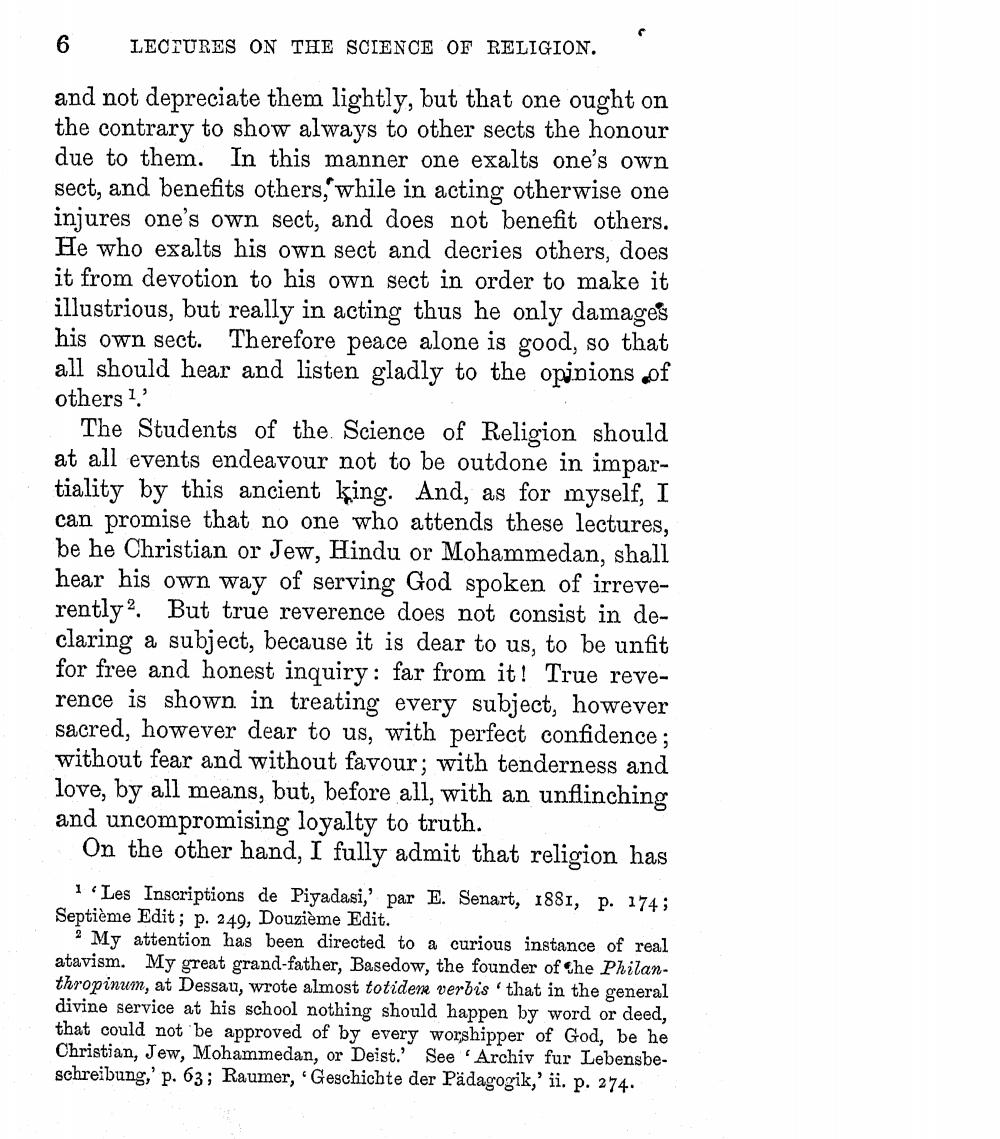________________
6 LECTURES ON THE SCIENCE OF RELIGION. and not depreciate them lightly, but that one ought on the contrary to show always to other sects the honour due to them. In this manner one exalts one's own sect, and benefits others,' while in acting otherwise one injures one's own sect, and does not benefit others. He who exalts his own sect and decries others, does it from devotion to his own sect in order to make it illustrious, but really in acting thus he only damages his own sect. Therefore peace alone is good, so that all should hear and listen gladly to the opinions of others 1.'
The Students of the Science of Religion should at all events endeavour not to be outdone in impartiality by this ancient king. And, as for myself, I can promise that no one who attends these lectures, be he Christian or Jew, Hindu or Mohammedan, shall hear his own way of serving God spoken of irreverently?. But true reverence does not consist in declaring a subject, because it is dear to us, to be unfit for free and honest inquiry: far from it! True reverence is shown in treating every subject, however sacred, however dear to us, with perfect confidence; without fear and without favour; with tenderness and love, by all means, but, before all, with an unflinching and uncompromising loyalty to truth.
On the other hand, I fully admit that religion has
1 Les Inscriptions de Piyadasi,' par E. Senart, 1881, p. 174; Septième Edit; p. 249, Douzième Edit.
My attention has been directed to a curious instance of real atavism. My great grand-father, Basedow, the founder of the Philanthropinum, at Dessau, wrote almost totidene verbis 'that in the general divine service at his school nothing should happen by word or deed, that could not be approved of by every worshipper of God, be he Christian, Jew, Mohammedan, or Deist.' See Archiv fur Lebensbeschreibung,' p. 63; Raumer, Geschichte der Pädagogik,' ii. p. 274.




